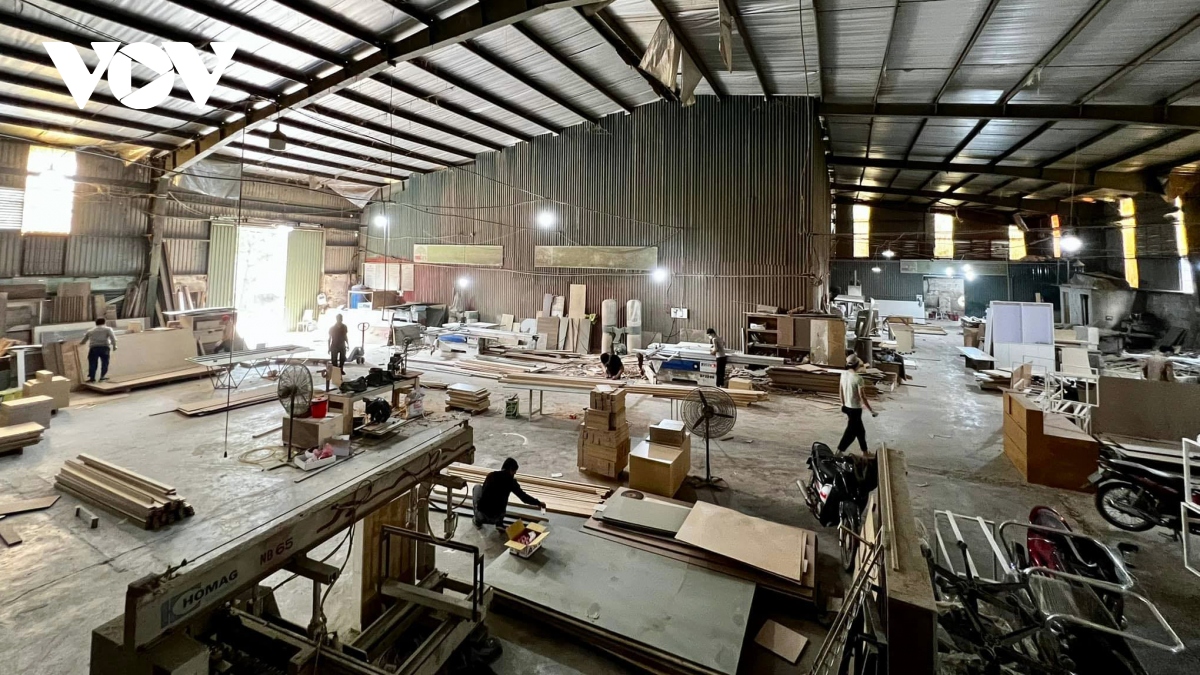Although the export turnover of goods in the first 5 months of the year was relatively favorable, in the face of the fact that the increase in fuel prices, the difficult and scarce supply of imported raw materials and accessories is causing many industries to produce, processing is difficult.
In terms of raw material prices, in the past 2 months in particular and in general from the beginning of 2022, the sharp increase in petrol and oil prices has been affecting the input factors of enterprises, including costs. transportation costs from the factory, raw materials, fuel costs of many machinery and equipment... Petrol prices are putting more pressure on businesses.
Mr. Nguyen Van Ket, Director of SKD Vietnam Precision Engineering Company, said that the continuous increase in gasoline prices caused suppliers to announce an increase in the price of raw materials in the coming time from 15-20% depending on the type. product. Meanwhile, it is difficult for enterprises to increase the prices of products to the market at the corresponding rate. In addition, if the price increases, businesses will also face the loss of customers.

According to Mr. Ket, although businesses have been proactive in regulating cash flow and stockpiling manufactured goods, they still face many difficulties because of their small size and limited financial resources. In the immediate future, enterprises are gradually improving technology, reducing production costs to adapt to the current price and cost context.
“With the current sharp increase in oil prices, the cost of enterprises in general is increased by about 20-25%, including transportation and production materials costs. Enterprises cannot increase product prices right away, but in the coming time, they will definitely have to calculate to include in the production cost structure. Enterprises hope that the State, ministries and branches will have solutions to stabilize or reduce the price of raw materials such as tax reduction, because with the current price increase and world fluctuations, businesses will continue to be under pressure. bigger in terms of price composition”, Mr. Ket wishes.
Difficulty when depending on one market
For many years, China is still a market that provides a variety of raw materials and accessories for domestic production and processing. However, when the Covid-19 epidemic still had complicated developments in this country and with the "Zero Covid" policy, it has made the import of raw materials and accessories of many key industries such as textiles, garments and footwear.
General Director of Garment 10 - Mr. Than Duc Viet shared, Garment 10 imports 50% of raw materials from China, so businesses are very worried about the story of supply chain disruption when they do not know that China's "Zero Covid" policy will until applicable. Fabric materials of May 10 have a production time from suppliers of 35-50 days. In mid-April and early May, suppliers in China began to be blocked, so far they are still blocking, causing businesses to be affected.
“If China applies it in a short time, enterprises can solve the problem of input materials, but if China continues to apply it for a long time, even orders signed by enterprises until August 2022 will also be affected. may be affected on the delivery schedule", Mr. Viet shared.
Similar to textiles, footwear is also an industry that is under a lot of pressure on the supply of raw materials when this industry imports up to 70% of raw materials and accessories from China.
Phan Thi Thanh Xuan, Vice President and General Secretary of the Vietnam Leather, Footwear and Handbag Association, said that China's large-scale blockade caused supply disruptions. Along with that, transportation and logistics costs are very high, so it is difficult for businesses to promptly respond to orders.
Diversify the raw materials market
The Department of Industry (Ministry of Industry and Trade) said that the dependence on raw materials and accessories from the Chinese market not only affects production development and economic growth in the short term, but also affects the industry. in particular and Vietnam's economy in general in the long run.
Therefore, in the long term, Vietnam must have solutions to develop supporting industries and some important basic material industries, overcoming dependence on imported input materials and components. password.
“The Ministry of Industry and Trade is trying to perfect the system of policies related to supporting industries so that businesses can access it directly and more easily. At the same time, coordinate with international organizations and multinational corporations to support enterprises to improve their capacity, improve, manage and most importantly support enterprises to participate in the supply chain," said Pham. Tuan Anh, Deputy Director of the Department of Industry said.
According to Mr. Vu Duc Giang, Chairman of the Vietnam Textile and Apparel Association, the Ministry of Industry and Trade needs to effectively promote the role of foreign trade counselors in order to strengthen the search for markets to supply raw materials, and to combine support for enterprises. access to a reliable source with good prices. This not only helps increase internal competitiveness for enterprises, but also minimizes the risks of dependence on a supply market or supply disruption, causing production disruption.
Affirming that they will actively support export industries and enterprises in connecting supply and demand of raw materials, the representative of the Ministry of Industry and Trade said that he has directed the Trade Offices to actively search, supply and update regularly. list of distributors, manufacturers and exporters of raw materials and accessories for the textile, footwear, computer, and raw materials industries for the production of chemicals, furniture, iron and steel,... At the same time, research and promote the import of essential raw materials to serve labor-intensive manufacturing industries such as textiles, footwear, electronics.../.
Nguyen Quynh/VOV.VN